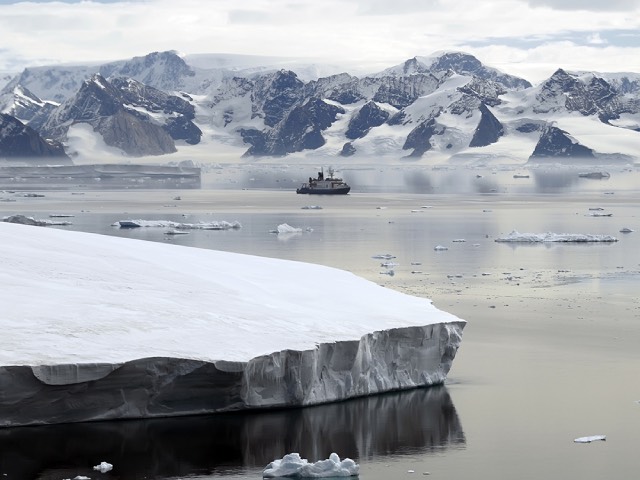The importance of sharing experience and best practices of shipping in Polar waters was highlighted during the 4th Meeting of the Arctic Shipping Best Practice Information Forum (24-25 November), held virtually.
Addressing the meeting, IMO’s Heike Deggim provided an overview of IMO regulations and guidance for shipping in Polar regions including the International Code for Ships Operating in Polar Waters (Polar Code), mandatory since 2017, which sets additional requirements for safety and protection for ships trading in the harsh environments of the Arctic and Antarctic waters.
Recent developments include the development of safety measures for ships not currently covered by the Polar Code, because they do not fall under the SOLAS convention. These include fishing vessels and yachts. IMO has developed two sets of draft guidelines, one on safety measures for fishing vessels of 24 m in length and over operating in polar waters and one for pleasure yachts of 300 gross tonnage and above not engaged in trade operating in polar waters. Both are expected to be approved next year.
Ms Deggim also referred to Guidance on methodologies for assessing operational capabilities and limitations in ice, issued by IMO in 2016 (MSC.1/Circ.1519). She encouraged Member States and operators and others who have made use of the Polar Operational Limit Assessment Risk Indexing System (POLARIS) – which is outlined in the guidance – to report back to IMO on their experience, so that the guidance can be updated, if necessary.
The Arctic Shipping Best Practice Information Forum, which hosts a comprehensive web portal, reports to the Arctic Council’s Protection of the Arctic Marine Environment Working Group (PAME).
The meeting was attended by some 140 participants, representing nearly 80 different entities and including representatives from Arctic States, as well as delegates from States of the southern hemisphere with an interest in the Antarctic region. Read more on the PAME website: here.
IMO has held observer status with the Arctic Council since 2019.









































